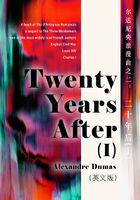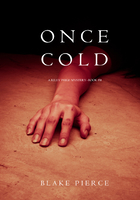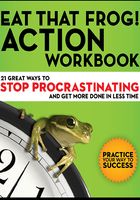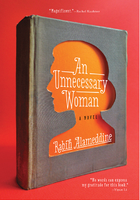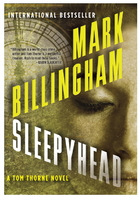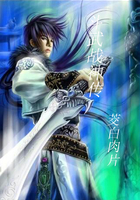Churchill entered Harrow School in April 1888. As at St George's and at Brighton he was a boarder, seeing his parents only in the holidays, if then. 'I like everything immensely,' was his comment in his first letter home, written three days after his arrival. In his second letter, written the next day, he was proud that one of the masters had told him his entrance paper in Arithmetic was 'the best'.
During his first month at Harrow, Churchill joined the school cadet force, and, he told his mother, 'attended my drills punctually'. He also went with the cadet force to Rickmansworth, where there was a mock battle with Haileybury School. 'As I had not got a uniform I only carried cartridges,' he wrote home. 'I carried 100 rounds to give away in the thick of the fight, consequently my business enabled me to get a good view of the field. It was most exciting, you could see through the smoke the enemy getting nearer & nearer.' The Harrow boys were beaten, however, '& forced to retire'.
In his first essay at Harrow, Churchill wrote about Palestine in the time of John the Baptist, when the land 'lay at the feet of the Roman, who was then at the apex of his glory'. Of the Zealots, he wrote that they were 'always ready for a rebellion, ready to risk their lives, their homes, their all for their country's freedom'. As to the Pharisees: 'Their faults were many. Whose faults are few? For let him with all the advantages of Christianity avouch that they are more wicked than himself, he commits the same crime of which he is just denouncing them.'
Churchill was learning to shoot with the Martini-Henry rifle, the one used by the Army. He was also learning a thousand lines of Macaulay for a form prize. 'Anyone who likes to take the trouble to learn them can get one,' he explained to his father, 'as there is no limit to the prizes.' On this occasion it was a thousand lines of The Lays of Ancient Rome which secured him a prize.
Churchill still yearned for his mother's visits, but sometimes they led to unhappiness of their own. 'Don't be cross with me any more,' he wrote at the end of June. 'I will try and work, but you were so cross to me you made me feel quite dull. I have kept my room quite tidy since you came.' And he added: 'Do come down Mamma on Saturday. I am not lazy & untidy but careless & forgetful.'
Lady Randolph did not visit her son that Saturday. He expected her to do so a week later, however, when he was singing in the school choir as a treble. 'I rank as one of the prominent trebles,' he explained, '& am in what is called the nucleus of the choir. Of course I am so young that my voice has not yet broken and as trebles are rare I am one of the few.' Despite this attraction Lady Randolph did not go down for Speech Day. Churchill had to be content with a visit from his aunt Lady Fanny Marjoribanks, whose son was also at Harrow and whose husband was a rising star on the Liberal benches.
The school songs Churchill sang on Speech Day roused his enthusiasm. 'The stirring patriotism these verses evoked,' his son Randolph later wrote, 'abided with him forever and was the mainspring of his political conduct.' When, at the height of the Blitz in 1940, Randolph accompanied his father to Harrow for the annual school songs, Churchill told him, 'Listening to those boys singing all those well-remembered songs I could see myself fifty years before singing those tales of great deeds and of great men and wondering with intensity how I could ever do something glorious for my country.'
Churchill himself was later to recall, in a speech to the boys at Harrow in October 1945, how he had also been 'much attracted' by the kettle-drum. Again and again he thought, 'If only I could get hold of this on one of these fine evenings.' But he was never allowed that opportunity. 'So I gave up that ambition and transferred my aspirations to another part of the orchestra. I thought, "If I cannot have the kettle-drum I might try to be the conductor". There was a great deal in the gestures, at any rate.' That could not be arranged either, while he was at Harrow, 'but eventually, after a great deal of perseverance, I rose to be conductor of quite a considerable band. It was a very large band and it played with very strange and formidable instruments, and the roar and thunder of its music resounded throughout the world.'
***
As part of the regular allowance of breaks, Churchill looked forward to going home for a weekend in July. But he was forced to stay at school. It was not that he was 'in any way wilfully troublesome', Henry Davidson, the assistant master, explained to Lady Randolph, 'but his forgetfulness, carelessness, unpunctuality, and irregularity in every way, have really been so serious, that I write to ask you, when he is at home to speak very gravely to him on the subject'.
There were further complaints to come. 'Winston, I am sorry to say, has, if anything got worse as the term passed,' Davidson explained. 'Constantly late for school, losing his books, and papers and various other things into which I need not enter-he is so regular in his irregularity that I really don't know what to do; and sometimes think he cannot help it.' If he was not able to 'conquer this slovenliness', Davidson warned, 'he will never make a success of a public school'. It was very serious indeed that he had acquired 'such phenomenal slovenliness'. He had 'such good abilities' but these would be 'made useless by habitual negligence'. And yet, Davidson added, 'I ought not to close without telling you that I am very much pleased with some history work he has done for me.' That term Churchill was awarded a form prize for English History.
A new challenge in the autumn term was a school prize for reciting a thousand lines of Shakespeare. Churchill's letters to his parents show how eager he was to win it, but he lost it by only twenty-seven marks, telling them, 'I was rather astonished as I beat some twenty boys who were much older than I.' Then, just before his fourteenth birthday, he wrote with pride of winning a history prize for the second term running. He had also come top in Roman History and was doing well at Greek and Latin.
At home over the Christmas and New Year, Churchill's throat was swollen and his liver 'still bad', he wrote to his mother, who was again travelling during his holiday. Medicine six times a day, he added, 'is a horrible nuisance'. As he recovered he was told by Dr Roose that he must go to the seaside to recuperate fully. Once more he went to the Isle of Wight with Mrs Everest. Back at school, however, illness continued to impede his progress. In March he told his mother he was 'far from well & am in bed because I can hardly stand'. His solace was a visit from Mrs Everest. 'I do not know how the day would have passed but for Woomany,' he told his mother.
Churchill's qualities did not go unnoticed. In April, Welldon decided to take him into his own House, writing to Lord Randolph, 'He has some great gifts and is, I think, making progress in his work.' Lord Randolph had sent his son a bicycle. 'I rode eight miles with it,' he wrote to his father in May, 'it is a beautiful little machine.' He enjoyed his new House, telling his mother, 'All the boys are so kind and nice.' But illness again intervened when he fell off the bicycle and was concussed; he had to spend a week in bed. Once more Mrs Everest hurried down to Harrow, but Churchill wanted his mother to be with him. 'Can't you come instead?' he asked. 'I was rather disappointed at not seeing you as I fully expected to.' The fall had been a serious one. 'I am very tender all over my body,' he told his mother, 'but feel cheery and not a bit dull, the time passes very quickly. Especially when I can have visitors.' His best piece of news was that the hospital nurse had gone 'and so I am alone with Woomany'.
As he recovered from his concussion, Churchill asked his father to come down for Speech Day. 'I don't think that you will be asked to make a speech,' he sought to reassure him. 'In fact I should think it will be very improbable.' Churchill added, 'You have never been to see me & so everything will be new to you.' It was more than a year since Churchill had entered Harrow. Lord Randolph did at last go down; while he was there he told Welldon he wanted his son to go into the Army Class, instead of the regular classes. Because the Army Class entailed extra lessons on the military subjects needed to enter a military academy, Churchill would have no opportunity to continue with those subjects taken by boys who wished to go to university, as he already hoped to do.
Churchill's results that term were such that there was no reason he should not eventually pass the university entrance examination. But Lord Randolph was emphatic that his son go into the Army, and therefore into the Army Class. Many years later Churchill reflected on his father's decision, recalling a visit of inspection which he had made one holiday to see his son's collection of nearly fifteen hundred toy soldiers. 'All the troops were arranged in the correct formation of attack. He spent twenty minutes studying the scene-which was really impressive-with a keen and captivating smile. At the end he asked me if I would like to go into the Army. I thought it would be splendid to command an army, so I said "Yes" at once: and immediately I was taken at my word.'
Churchill added, wryly: 'For years I thought my father with his experience and flair had discerned in me the qualities of military genius. But I was told later that he had only come to the conclusion that I was not clever enough to go to the Bar.' Welldon arranged for Churchill to take the Army Class examination. He did badly in mathematics, making it difficult for him to contemplate going on to Woolwich, the academy for cadets seeking commissions in the Royal Artillery or Royal Engineers. Instead he would have to prepare for Sandhurst, the academy for would-be infantry and cavalry officers. 'I have joined the "Army class",' he wrote to his mother at the end of September. 'It is rather a "bore" as it spoils your half Holiday: however we do French & Geometrical drawing which are the two things which are most necessary for the army.'
As Churchill began the extra work which being in the Army Class entailed, he urged his mother to write to him. 'It is more than a fortnight since I heard from you,' he complained at the beginning of October. 'In fact I have only had one letter this term. It is not very kind darling Mummy to forget all about me, not answer my epistles.' One of Churchill's letters to his mother, a month before his fifteenth birthday, was dictated to a school friend. 'Milbanke is writing this for me,' he explained, 'as I am having a bath.' Many years later other shorthand writers were to take dictation while Churchill the Prime Minister was in his bath.
Milbanke, who was killed in action in 1915 at Gallipoli, during the landing at Suvla Bay, was nearly two years Churchill's senior. 'When my father came down to see me,' Churchill later recalled, 'he used to take us both to luncheon at the King's Head Hotel. I was thrilled to hear them talk, as if they were equals, with the easy assurance of one man of the world to another. I envied him so much. How I should have loved to have that sort of relationship with my father! But alas I was only a backward schoolboy and my incursions into the conversation were nearly always awkward or foolish.'
Alone with his friends Churchill was far from inhibited or overwhelmed. 'Like other boys at Harrow,' another older boy, Murland Evans, later recalled, 'I was greatly attracted by this extraordinary boy. His commanding intelligence, his bravery, charm, and indifference to ugly surroundings, vivid imagination, descriptive powers, general knowledge of the world and of history-gained no one knew how, but never disputed-and above all that magnetism and sympathy which shone in his eyes, and radiated from a personality which-even under the severe repression of our public school system-dominated great numbers around him, many of whom were his superiors in age and prowess.'
Speaking of his future, Churchill told his aunt Lady Rodney, 'If I had two lives I would be a soldier and a politician. But as there will be no war in my time I shall have to be a politician.' He had become a voracious reader. One boy, finding him curled up in a chair reading, asked to see the book. It was Carlyle's French Revolution. But from his father there seemed little encouragement; Churchill's cousin Shane Leslie later recalled that when the boys staged plays at home Lord Randolph would remark, 'I shall preserve a stony and acid silence.'
That winter Churchill was put on 'report' by Welldon; each week his masters had to give an account of his progress. Even when it became clear that his progress was satisfactory and that the masters had 'no complaint' Welldon kept him on report. 'It is a most shameful thing that he should keep me on like this,' Churchill wrote to his mother, urging her to come down and speak to the headmaster direct. 'Please don't be afraid of him, because he always promises fair & acts in a very different way. You must stick up for me because, if you don't nobody else will.'
A week after his fifteenth birthday Churchill wrote proudly to his mother, 'I am working very hard.' So hard, in fact, that despite the extra work of the Army Class, he got his Remove into a higher division of the fourth form. 'We were delighted to hear you had your remove,' his mother wrote on the eve of leaving for Europe yet again, '& do hope you will continue to work. You ought to feel much encouraged & full of ambition.'
Churchill had begun to study English under a master who taught it with enthusiasm and skill, breathing life into the normally dull topic of sentence construction. The master was Robert Somervell, 'a most delightful man', Churchill later wrote, 'to whom my debt is great'. Somervell's method, Churchill recalled, was to divide up a long sentence into its component clauses 'by means of black, red, blue and green inks', and teaching it almost daily as 'a kind of drill'; by this method 'I got into my bones the essential structure of the ordinary British sentence-which is a noble thing'.
'I am getting on capitally in my new form,' Churchill reported to his mother in January 1890. 'Papa said he thought singing was a waste of time, so I left the singing class and commenced drawing.' He studied drawing for an extra hour each week, in the evening, telling his mother that he had been drawing 'little landscapes & bridges & those sort of things' and was about to begin shading in sepia. An unexpected letter of encouragement came from his grandmother Duchess Fanny, who wrote: 'Am pleased to see you are beginning to be ambitious! You have a great example of industry in your dear father & of thoroughness in work.'
The Army Class, Churchill complained to his father that spring, 'takes me away from all the interesting work of my form & altogether spoils my term'. Nine-tenths of the boys in the Army Class would in any case go to a crammer before their Army exam. All of them disliked the Army Class because 'it made them come out low in their form'. Harrow was 'a charming place but Harrow & the Army Class don't agree'. His protest was of no avail.
In May, Churchill began learning German. 'Ugh,' he wrote to his mother. 'Still I hope to be able to "Sprechen ze Deutche" one of these days.' This hope was never to be realised.
Half way through the summer term of 1890, Churchill was confronted by parental anger. His father had sent him five pounds, and had not received a thank-you letter until a week later. His half-term school report was also disappointing. These two facts combined to produce a formidable letter from his mother. 'You work in such a fitful inharmonious way,' she wrote, 'that you are bound to come out last-look at your place in the form!' Her letter continued: 'Dearest Winston you make me very unhappy-I had built up such hopes about you & felt so proud of you-& now all is gone. My only consolation is that your conduct is good & that you are an affectionate son-but your work is an insult to your intelligence. If you would only trace out a plan of action for yourself & carry it out & be determined to do so-I am sure you could accomplish anything you wished.' There was more advice to come. 'The next year or two,' she warned, '& the use you make of them, will affect your whole life-stop and think it out for yourself & take a good pull before it is too late.'
Churchill made an effort to defend himself. The thank-you letter to his father had been written that same evening, he explained, but because of the lateness of the hour he had been forced to give it to someone else to post. 'He I suppose forgot & did not post it until several days had elapsed.' As to his bad report: 'I will not try to excuse myself for not working hard, because I know that what with one thing and another I have been rather lazy. Consequently when the month ended the crash came I got a bad report & got put on report etc, etc. that is more than 3 weeks ago, and in the coming month I am bound to get a good report.' There was plenty of time until the end of term 'and I will do my very best in what remains'.
The crisis passed; Churchill's work improved and his parents' anger was assuaged. That autumn he began to smoke, provoking further criticism. 'Darling Winston,' his mother wrote in September, 'I hope you will try & not smoke. If only you knew how foolish & how silly you look doing it you would give it up, at least for a few years.' There was to be an inducement to giving up smoking, 'I will get Papa to get you a gun & a pony.' Churchill deferred to his mother's advice. He would give up smoking 'at any rate for six months'. That September Duchess Fanny had further advice: 'Take care of yourself & work well & keep out of scrapes & don't flare up so easily!!!'
As Churchill approached his sixteenth birthday, he followed with alarm the spread of an influenza epidemic that, after ravaging much of Europe and Asia, spread, briefly, to Britain. The epidemic became the subject of a poem he wrote, in twelve verses, that was published in the Harrovian magazine. One verse read,
O'er miles of bleak Siberia's plains
Where Russian exiles toil in chains
It moved with noiseless tread,
And as it slowly glided by
There followed it across the sky
The spirits of the dead.
Another verse referred to the two German provinces he had visited with his father seven years earlier,
Fair Alsace and forlorn Lorraine,
The cause of bitterness and pain
In many a Gallic breast,
Receive the vile, insatiate scourge,
And from their towns with it emerge
And never stay nor rest.
The final verse rejoiced that Britain had not been as terribly affected as the Continents, and expressed his pride in the British Empire,
God shield our Empire from the might
Of war or famine, plague or blight
And all the power of Hell,
And keep it ever in the hands
Of those who fought 'gainst other lands,
Who fought and conquered well.
As his sixteenth birthday approached, Churchill worked on his Army preliminary examination. Curiously insensitive to the strains of such work, his mother let it be known that she was not satisfied with his progress. 'I hear that you are greatly incensed against me!' he wrote. 'I am very sorry. But I am very hard at work & I am afraid some enemy hath sown tares in your mind.' He had already explained that his earlier problems had arisen 'on account of my being put under a master whom I hated & who returned that hate'. He was now being taught 'by masters who take the greatest interest in me & who say that I have been working very well. If you will take my word of honour to the effect that I am working my very best, well & good, if not-I cannot do anything more than try.'
It was from one of his mother's friends, Lady Wilton, who signed her letters to him 'your deputy mother', that Churchill now received words of affection and encouragement. 'I'm sorry you have so much hard work before you,' she wrote ten days before his sixteenth birthday, 'but-if you face it-it will gradually appear less hard-& I'm sure you'll pass well.' The examination was to take place on December 10. 'I expect you will distinguish yourself,' Lady Wilton wrote in a second letter, adding, 'I will rejoice in it'.
In Geography, Churchill would have to answer questions about one particular country; which country, none of the boys knew. On the night before the exam he wrote the names of each of the twenty-five possible countries on scraps of paper, put them into his hat, closed his eyes, and drew one out. 'New Zealand was the one,' he wrote to his mother, 'and New Zealand was the first question on the paper.' This good luck, combined with Churchill's hard work over many months, was effective. He passed the examination in all subjects. 'I am very pleased to hear the good news,' Duchess Fanny wrote to him when the results were known. 'I hope it will encourage you to continue to exert & distinguish yourself & make us all proud of you.'
Churchill and Jack spent the New Year of 1891 at Banstead, a house which Lord Randolph had rented near Newmarket racecourse. As their parents were yet again abroad, Mrs Everest looked after them. 'We have slaughtered many rabbits,' Churchill reported to his mother. 'About eleven brace altogether. Tomorrow we slay the rats.' His main effort at Banstead with Jack was to build a 'Den', a hut made of mud and planks, with a straw floor. Surrounded by a ditch which served as a moat, the Den was defended with a home-made elastic catapult that fired apples at any would-be intruder. Churchill took charge of the defences, using his brother Jack, and his two cousins, the five-year-old Shane Leslie and the six-year-old Hugh Frewen, sometimes as allies to be drilled and defended, sometimes as enemies to be repulsed.
Back at Harrow, Churchill continued to be troubled by ill-health, writing to his mother in May of how he had strained his abdomen, felt considerable pain, and was 'frightened'. His teeth were also giving him trouble. 'Poor old man,' Mrs Everest wrote, 'have you tried the heroin I got you-get a bottle of Elliman's embrocation & rub your face when you go to bed & tie your sock up over your face, after rubbing for a 1/4 of an hour, try it I am sure it will do you good.' To his mother Churchill signed himself, 'Your tooth-tormented-but affectionate son.' Her advice was that he should brush his teeth more often. From Mrs Everest came a warning about not going swimming in the Harrow pool as 'the wind is still east & treacherous'. Her kindly advice was continuous. 'Be sure,' she wrote that summer, 'you don't attempt to get into the train after it moves off dear. I always feel uneasy about that because you stand at the Book Stall reading & forget your train. Do be careful there's a dear boy.'
That May, Churchill also told his mother he had been in the 'deuce of a row' at school. To his father, who was in South Africa, he explained how he and four other boys, while out walking, had discovered a disused factory. 'Everything was in ruin and decay but some windows yet remained unbroken; we facilitated the progress of time with regard to these, with the result that the watchman complained to Welldon, who having made enquiries and discoveries, "swished" us.' It was not this episode, however, but another fault, that led to a further parental complaint. 'Mamma is in despair about your spending so much money,' Mrs Everest wrote in the second week of June. 'She is greatly troubled about it, she says you are always asking her for more money.' In his defence Churchill explained to his mother that he had to pay his repeated dentist bills and taxi fares to the dentist, as well as 'an old bicycle debt' and the 'window smashing stupidity'.
Churchill had been made a Lance Corporal in the school cadet force. There had been a 'sham fight' which he had enjoyed immensely, he told his father. 'I took the opera glasses you gave me and through them scrutinised the foe.' He was suffering that summer from pain in his gums. 'I am notable to go out,' he wrote to his father, 'as I am tormented with toothache which has now turned to an abscess, so my face is swelled to twice its normal size.' From Mrs Everest came advice about his teeth, 'Don't eat too many of those nasty pickles, they are poisonous things.' One tooth would have to go; it was finally extracted in London under the supervision of a leading authority on the use of anaesthetics in dental surgery. 'I remembered nothing,' Churchill told his mother, 'but went to sleep & snored throughout the whole performance.'
Churchill hoped to spend a week that summer at Banstead, in his Den. But Mrs Everest explained that 'the reason Mamma cannot have you home is the house is to be full of visitors for the race week'. He went instead to London, staying with Duchess Fanny at 50 Grosvenor Square. While he was in London his mother's friend Count Kinsky took him to the Crystal Palace, where they saw a fire-brigade drill specially performed in the presence of the German Emperor, William II. 'There were nearly 2,000 firemen & 100 engines,' Churchill told his brother. The Emperor wore a helmet 'of bright brass surmounted by a white eagle nearly six inches high, a polished steel cuirass & a perfectly white uniform with high boots'. After the march-past, Kinsky took Churchill out to dine. 'Very tolerable dinner,' he told Jack. 'Lots of champagne which pleased your loving brother very much.'
Welldon had suggested that Churchill go to France to improve his French for the Army examination. Churchill begged his mother to let him stay in England. 'I shouldn't see Jack nor you, nor Everest at all.' As for the examination: 'Really I feel less keen about the Army every day. I think the Church would suit me much better.' After much correspondence and heated argument it was agreed that he would not have to go to France; a governess would suffice. 'I can't tell you how happy I am that I am not to go abroad for the holidays,' he wrote to his mother. From Banstead came a letter from Jack; the Den was 'very hard to approach for huge thistles & stinging nettles are all round about, and the ditch is empty of water'. His French lessons over, Churchill set to work to clear the Den and make it defensible again. 'Here I am at Banstead,' he wrote to his father at the end of August, 'leading what to me is an almost ideal existence.'
The two brothers 'have been happy as kings riding and shooting', Lady Randolph wrote to her husband in mid-September, 'and lately they have had great fun building a house. We had tea there today'. Shortly before he had to return to school for the autumn term, Churchill had a bilious attack, and remained in London for two extra days. Welldon demanded a letter of explanation. 'Don't say anything about the theatre,' Churchill warned his mother, 'or that would make him rampant. Merely say I looked tired & pale from the journey (as indeed I did) & that, combined with the fact that you wanted me to see a doctor induced you to "Keep me back".'
That term Churchill dropped German and began Chemistry. 'It is very interesting,' he told his brother, '& when I come home I will show you many wonders.' His mother was anxious to find a tutor who would travel abroad with him in the next holidays. 'On the whole he has been a very good boy,' she explained to Lord Randolph, 'but honestly he is getting a bit too old for a woman to manage. After all he will be seventeen in two months and he really requires to be with a man.'
The 'woman' was Mrs Everest, to whom Churchill was as devoted as she to him. 'Fancy having a room all to yourself,' she wrote at the end of September, 'but my dearest Boy do let me impress it upon you to be careful of your fire & candle at night. Don't go to sleep and leave it burning by your bedside.' He should work hard that term, she advised, not only to please his parents but to 'disappoint some of your relations who prophesy a future of profligacy for you'.
Churchill did not depend only on his mother for his luxuries. 'I am going to sell my bicycle for a bulldog,' he wrote to her that term. 'I have known him some time & he is very tame & affectionate.' His father had told him he used to have a bulldog at Eton, 'so why not I at Harrow?'
Work that term went well. 'Mr Welldon told me since his return he has worked very hard,' Lady Randolph told her husband in October. But from Mrs Everest came a protest. 'I think you are awfully extravagant to have spent 15/-in one week,' she wrote, 'some families of six or seven people have to live upon 12/-a week. You squander it away & the more you have the more you want & spend.' Her letter ended: 'My poor sweet old precious lamb how I am longing for a hug-although you are not perfect I do love you so very much & I do so want you to have more discretion & judgment about spending your money. You do everything at random my Pet without thinking & it is a growing evil & unless you try & cure yourself of it you will have to suffer severely later on.'
That term Churchill had his first letter published; a two-sentence appeal for more convenient opening hours for the school library, it appeared in the school magazine, the Harrovian, on 8 October 1891. Six weeks later, in a much longer letter, he urged that greater use be made of the school gymnasium for special events. 'It is time there should be a change,' he wrote, 'and I rely on your influential columns to work that change.'
A week before his seventeenth birthday, Churchill went to London for the day. A postscript to his next letter home contained a reference to the opposite sex. 'It was awfully bad luck having to go,' he wrote to his mother, 'just as I was making an impression on the pretty Miss Weaslet. Another 10 minutes and…!?'
During that day in London, Churchill learned that Mrs Everest was to leave Lady Randolph's employ. Jack was now eleven and a nanny was no longer needed. 'I do not feel very happy & cannot sleep,' Mrs Everest wrote to Churchill. 'But I suppose there must be something to bring us to our end.' He must remember, she added, to wear a coat 'this wet weather'. As for his younger brother: 'Please don't tell Jackie about my going away he will be so unhappy poor darling. What a cruel world this is.' Distressed at Mrs Everest's imminent departure, Churchill protested vigorously on Jack's behalf. It was eventually arranged that she would work for their grandmother, Duchess Fanny, at Grosvenor Square, where the two boys would still see her.
A week after his seventeenth birthday, Churchill wrote to his mother to say that he once more refused to go to France, this time during the Christmas holidays to learn French with a family in Rouen. The family had been chosen by Welldon. If he went, he explained, he would miss his father's homecoming from South Africa. If forced to go, 'I will do as little as I can and the holidays will be one continual battle.' Lady Randolph was not pleased by this threat. 'My dear boy,' she replied, 'I feel for you in every way & can quite understand your anxiety & desire to be at home for Xmas, but quite apart from other considerations, the tone of your letter is not calculated to make one over lenient. When one wants something in this world, it is not by delivering ultimatums that one is likely to get it. I tell you frankly that I am going to decide not you.'
Churchill did not give up the argument. 'You say that "You tell me frankly", very well Mamma I only told you frankly my intentions. You say it is for you to decide. I am required to give up my holidays-not you, I am forced to go to people who bore me excessively-not you.' He was 'very much surprised and pained to think that both you & Papa should treat me so, as a machine. I should like to know if Papa was asked to "give up his holidays" when he was at Eton.'
Towards the end of his letter, which covered three pages, Churchill wrote: 'I am more unhappy than I can possibly say. Your unkindness has relieved me however from all feelings of duty.' Lady Randolph was now much angered. 'I have only read one page of your letter,' she replied, 'and I send it back to you-as its style does not please me.' Upset, Churchill answered that he would never again write her a letter 'of any length, as in my letter's length I can perceive a reason for your not reading it'. He added: 'I expect you were too busy with your parties and arrangements for Christmas. I comfort myself by this.'
Both Welldon and Lady Randolph were emphatic that Churchill should study French in France that holiday. It was arranged that the recently appointed Modern Languages master at Harrow, Bernard Minssen, would accompany him, and that he would stay with Minssen's parents at Versailles. 'Mr Minssen will do everything for him, if he is docile and industrious,' Welldon wrote to Lady Randolph, 'but he will not let him waste his time and, if he is idle, he must be sent home.' Churchill would be allowed to accept only three social invitations a week, and Minssen would supply 'such pocket money as is necessary'.
Churchill stayed at Versailles for a month. 'The food is very queer,' he wrote to his mother in his first letter. 'But there is plenty, & on the whole it is good.' Minssen's parents were being 'very kind' to him. 'Of course,' he added, 'I would give much to return, if you wish it I will come tomorrow-but considering all things I am prepared to stay my month.' From Mrs Everest came a letter of encouragement: 'Cheer up old Boy, enjoy yourself & try to feel contented. You have very much to be thankful for, if only you consider, & fancy how nice it will be to be able to parlez vous francais.'
Life at Versailles did not prove too burdensome. Three of Lady Randolph's friends invited Churchill to meals; one of them, the Austro-Hungarian railway magnate Baron Maurice de Hirsch, took him to the morgue under one of the bridges over the Seine, to see the corpses which had been dragged out of the river that day. 'Only 3 Macabres-not a good bag,' Churchill reported to his mother.
As his month at Versailles came to an end Churchill hoped to persuade his parents to let him have a week off school, in order to be with his father, whom he had not seen for more than eight months. But it was not to be. 'The loss of a week now,' his father wrote from London in mid-January, 'means your not passing, which I am sure you will admit would be very discreditable & disadvantageous.' Father and son would still have 'a few days together' before school began, Lord Randolph noted, and after that the Easter holidays 'will soon be upon us, tho I must say I hope you will work like a little dray horse right up to the summer examination, only about four months off.'
Churchill worked extremely hard throughout the early months of 1892. He also began preparing for the school fencing cup. Money problems continued to beset him. 'I am getting terribly low in my finances,' he wrote to his mother in February. 'You say I never write for love but always for money. I think you are right but remember that you are my banker and who else have I to write to?'
In March, Lady Randolph went to Monte Carlo. 'I am very sick with you for going away like that,' Churchill wrote. He was only a few days away from the fencing competition. He was even more 'terrified', he told her, to learn that she had been robbed of her purse at the Casino, 'for at the same moment I must put in a request for "un peu plus d'argent"'. He also had good news to impart: 'I have won the fencing. A very fine cup. I was far and away first. Absolutely untouched in the finals.'
Churchill was now preparing for the Public Schools fencing championship, but when he asked his father to come to Aldershot to watch him, Lord Randolph replied, 'It is Sandown races which I must go to.' As to Churchill's continual requests for money, 'If you were a millionaire,' his father complained that March, 'you could not be more extravagant.' Were he to get into the Army 'six months of it will see you in the Bankruptcy Court'. In his defence, Churchill pointed out that he had to pay each week for his own teas and breakfasts, for fruit, and for Saturday night biscuits; these alone used up his parents' allowance of a pound a week. This explanation, accurate in itself, did not entirely assuage his mother. 'Your wants are many,' she wrote at the beginning of May, '& you seem a perfect sieve as regards money.'
That month Churchill won the Public Schools fencing championship. 'His success,' wrote the Harrovian, 'was chiefly due to his quick and dashing attack, which quite took his opponents by surprise.' Preparation for the Army exam was now continuous. 'I am working awfully hard,' he told his mother, 'without rotting I have done at least 10 hours today.' But the work was in vain; when he took the Sandhurst entrance examination that July he failed. The minimum marks needed to enter the Cavalry were 6,457; Churchill obtained 5,100. Of the 693 candidates he came 390th. The results were not entirely discouraging; in English History he was eighteenth out of more than four hundred candidates who took the paper. 'I think your marks & place very creditable for your first try,' wrote his Army Class tutor, Louis Moriarty.
Churchill would have to take the examination again. 'If he fails again,' Lord Randolph wrote to Duchess Fanny, 'I shall think about putting him in business.' Using his Rothschild connection 'I could get him something very good.'
***
In the summer of 1892 Lord Salisbury's Conservative Government was defeated, and Gladstone once more became Prime Minister. Although Lord Randolph had long been excluded from Conservative counsels, it was thought, Churchill later recalled, that in opposition he would regain his Parliamentary ascendancy: 'No one cherished these hopes more ardently than I.' Such hopes were illusions. 'Although in the past little had been said in my hearing,' Churchill later wrote, 'one could not grow up in my father's house, and still less among his mother and sisters, without understanding that there had been a great political disaster.'
That August, at Banstead, Churchill startled his father by firing a double-barrelled gun at a rabbit which had appeared on the lawn right under his window. 'He had been very angry and disturbed,' Churchill recalled. 'Understanding at once that I was distressed, he took occasion to reassure me. I then had one of the three or four long intimate conversations with him which are all I can boast.' Lord Randolph explained to his son that older people, absorbed in their own affairs, were not always considerate towards the young 'and might speak roughly in sudden annoyance'. He then began to talk 'in the most wonderful and captivating manner about school and going into the Army and the grown-up life which lay beyond. I listened spellbound to this sudden complete departure from his usual reserve, amazed at his intimate comprehension of all my affairs. Then at the end he said, "Do remember things do not always go right with me. My every action is misjudged and every word distorted. So make some allowances."'
That autumn Jack joined his brother at Harrow, as he worked to take the Army exam again. 'I suppose,' wrote Lady Randolph that September, 'I have made too much fuss over you & made you out a sort of paragon. However it will be all right if you put your shoulder to the wheel this time.' Even the headmaster was helping. 'Welldon is very nice,' Churchill told his mother. 'He makes me do proses for him every evening and looks over them himself with me; a thing hitherto unheard of, as he of course is very pressed for time.'
The examination was to take place at the end of November, a day before Churchill's eighteenth birthday. 'His work this term has been excellent,' Welldon told Lord Randolph. 'He understands now the need of taking trouble, and the way to take it, and, whatever happens to him, I shall consider that in the last twelve months he has learned a lesson of life-long value.' Welldon added, 'It is due to him to say that of late he has done all that could be asked of him.'
When the results were announced Churchill was devastated to learn that he had failed again. All his marks had improved, but not sufficiently; he had obtained 6,106, only 351 short of the pass mark. In Chemistry he had come eighth out of 134 candidates. As Welldon had warned Lord Randolph, the standard, because of a rise in the permitted age of admission, was 'likely to be very high'. From his mathematics tutor, C.H.P. Mayo, came words of encouragement, 'A gain of 900 marks in so short a time is very pleasing and must make you feel confident about the examination in June.'
That November, Lord Randolph's elder brother Blandford, 8th Duke of Marlborough, died suddenly at Blenheim, at the age of forty-eight. Blandford's son, Churchill's cousin Sunny, was now Duke of Marlborough. He was not quite twenty-one. Were Sunny to die before having a son, Lord Randolph would become Duke of Marlborough, and Churchill, as the heir to the Dukedom, would be Marquess of Blandford.
Churchill was now eighteen. He still had to pass a third examination if he was to enter the Army. He was to take this third exam, not at school, but at a special crammers. His nine years as a schoolboy and a boarder at St George's, Brighton and Harrow had been a predominantly unhappy time, 'a sombre grey patch on the chart of my journey', he later called it. 'It was an unending spell of worries that did not then seem petty, and of toil uncheered by fruition; a time of discomfort, restriction and purposeless monotony.' All his contemporaries, he later wrote, and even younger boys, 'seemed in every way better adapted to the condition of our little world. They were far better at both games and at the lessons. It is not pleasant to feel oneself so completely outclassed and left behind at the very beginning of the race.'
'I am all for the Public schools,' was Churchill's comment in 1930, 'but I do not want to go there again.'

